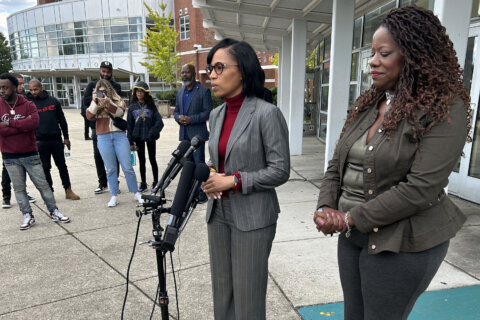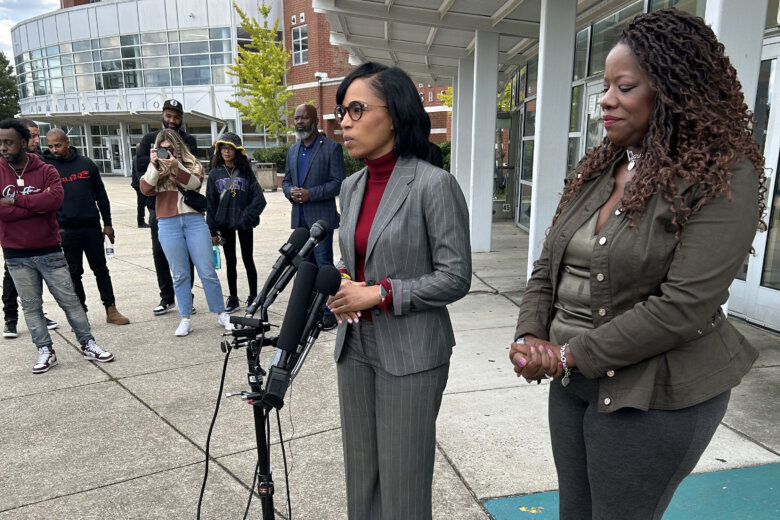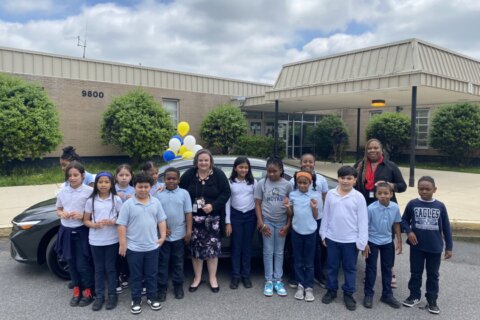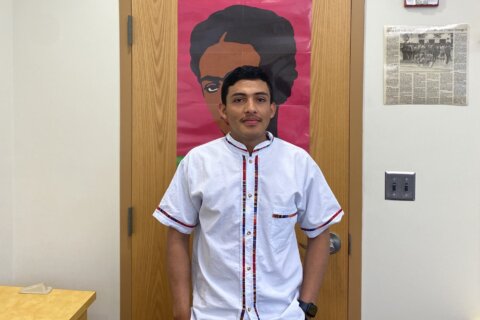
Leaders in Prince George’s County, Maryland, on Tuesday met with students at Charles Herbert Flowers High School in Springdale, fielding concerns about recent acts of violence in the community.
County Executive Angela Alsobrooks and State’s Attorney Aisha Braveboy said they’re launching a series of conversations with students who are directly affected by violence.
The meeting wasn’t public, but Alsobrooks and Braveboy said it was clear that the pandemic had a significant emotional impact on students. In many cases, students want to be more connected with their parents.
Braveboy called the conversation powerful and consequential.
Tuesday’s gathering came weeks after 16-year-old Jayda Medrano-Moore was shot and killed near DuVal High School. Police said the teenager arrested in connection with that shooting is a student at Flowers High.
“It was very sad to hear the number of students who said we have parents and family who do not listen to us, who do not know us, and who are too otherwise engaged to give us what we need,” Alsobrooks said. “It’s very sad. And so that means that the solution to this is one that won’t be solved just in the school building.”
After hearing from students, Alsobrooks urged parents to listen to their kids and ask how they’re feeling.
Tiffany Evans, whose son P.J. was killed by a stray bullet in Landover in 2021, said engaging with the students made her realize that some of the issues in the community start at home.
“It’s a lot of parents just not taking accountability for the lack of parenting,” Evans said, pointing out that some parents don’t know their kids’ favorite color.
“Kids don’t even know what a hug feels like from their parents,” Evans said. “They’re getting it from the community. So, they just get exposed to the wrong people. And the parents just got to put more love into the house.”
Some students, Alsobrooks said, explained that social media made them feel like they grew up too quickly. It could result in students making spur-of-the-moment decisions, she said.
Students also said that social media provides them with the platform to create a different persona, according to Braveboy.
“Having that gun, being on social media with those weapons, gives off a persona that they want to show the world who they are,” Braveboy said. “What they really want, from what we understood, was more time, more quality time with their parents.”
Parents should also be aware of what students do when they’re on their cellphones, Braveboy said. She urged parents to put restrictions on their kids’ phones, and download software so they know how they’re being used.
“It is not an invasion of privacy,” Braveboy said. “It is called good parenting.”
Although it wasn’t talked about much during Tuesday’s session, Braveboy said that absenteeism was an issue.
“I’m not saying locking parents up, but what I am saying is that holding parents and children accountable for being in school because if they’re not in school, where are they?”
Evans reminded parents to take care of themselves, too.
“You experience things, and that’s how you can shift the gear a little bit with your style of parenting. But for me, I had structure in my house. And it’s a lack of structure right now going on,” Evans said.









